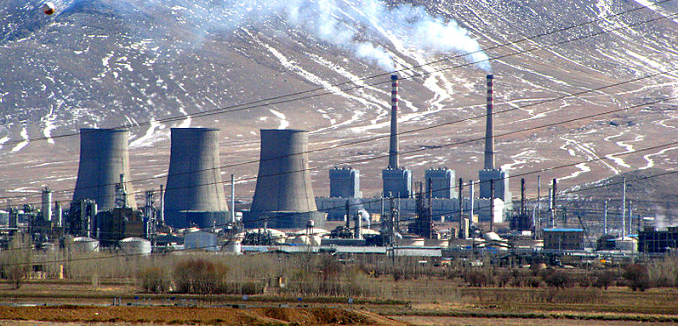The Islamic Republic of Iran threatened Wednesday to resume higher-level enrichment of uranium and announced the scaling back of its commitments under the 2015 nuclear accord, a year after the United States pulled out of the Joint Comprehensive Plan of Action (JCPOA).
In a speech broadcast on national television, Iranian President Hassan Rouhani said he had notified the remaining signatories of the nuclear accord – Germany, France, Britain, China, and Russia – that they have 60 days left to shield Iran’s oil and banking sector from crippling U.S. sanctions.
Rouhani also announced that Iran would stop exporting excess uranium and heavy water from its nuclear program, two requirements of the deal.
“We felt that the nuclear deal needs a surgery and the painkiller pills of the last year have been ineffective,” Rouhani said. “This surgery is for saving the deal, not destroying it.”
However, the Iranian president threatened a “strong reaction” if European leaders instead sought to impose more sanctions on the Islamic Republic in the UN Security Council. Iranian Foreign Minister Mohammad Javad Zarif tweeted: “After a year of patience, Iran stops measures that US has made impossible to continue.”
Reaction came swiftly to Iran’s threats. France’s Defense Minister, Florence Parly, said while her country wanted to keep the nuclear deal alive, Iran could face more sanctions if it violated the terms of the agreement.
Israeli Prime Minister Benjamin Netanyahu stressed that, “We will not allow Iran to obtain nuclear weapons,” adding, “We will continue to fight those who seek to take our lives, and we will thrust our roots even deeper into the soil of our homeland.”
In a fact sheet released by the Department of State on Saturday, the U.S. detailed actions it has taken to curb Iran’s illicit nuclear and non-nuclear activities. So far, the Trump administration has designated over 970 Iranian entities and individuals in more than 26 rounds of sanctions.
The U.S. also designated more than 70 Iran-linked financial institutions and their foreign and domestic subsidiaries. In addition, the Islamic Republic lost billions of dollars in investments after more than 100 corporations exited the Iranian market.
Since May 2018, 1.5 million barrels/day of Iranian crude have been taken off the market, and purchases of Iranian crude will soon be at zero after the U.S. ended the waiver program last month. Overall, U.S. sanctions have denied the Iranian regime direct access to as much as $10 billion in oil revenue over a 12-month period.
The Department of State also said that Iran’s currency, the rial, has lost two-thirds of its value, and inflation has hit a record 40 percent.
[Photo: Mohsan Dabiri-e Vaziri / Wikimedia Commons]




